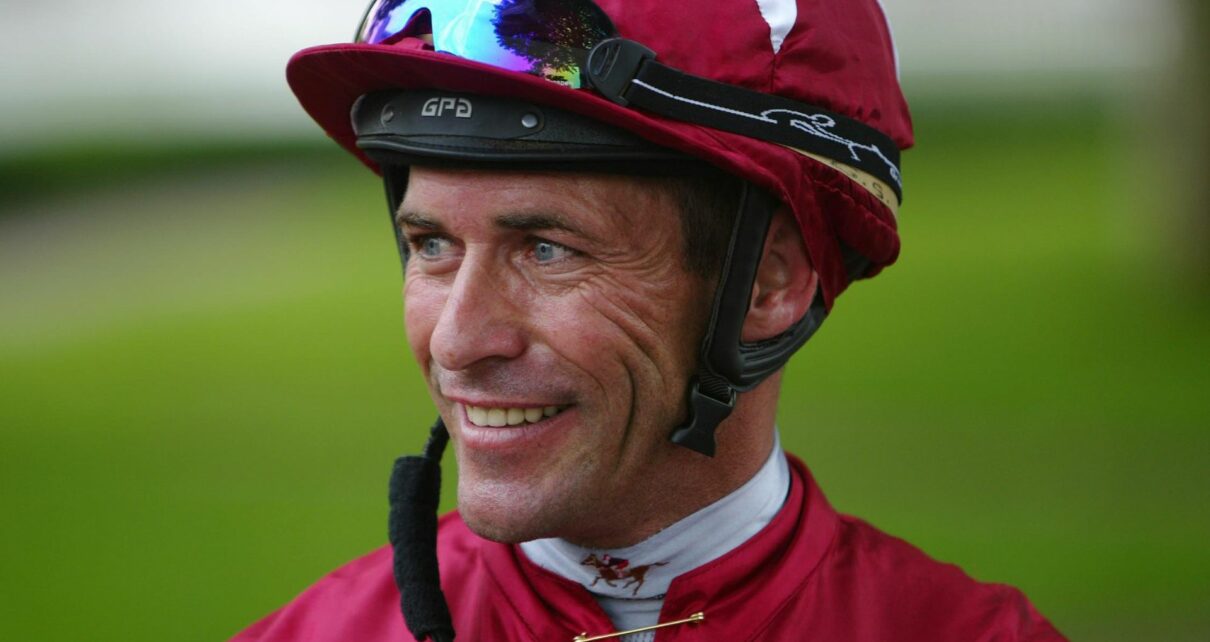"YOU won't even ride a merry-go-round – you're a millimetre from being a quadriplegic."
That was how the legendary career of top jockey Gary Stevens ended.
After more than £5million in surgery, a new hip and knee and countless blows to the head, his doctor told him he could take no more.
Mind you, with more than £200m in prize money, a film career and lucrative role as a TV analyst, it's easy to suggest it was all worth it for the jockey known as 'The Bionic Man'.
He certainly won just about all there was to win on the track.
His more than 5,000 wins included three in the Kentucky Derby, three Preakness Stakes, three Belmont Stakes and two Kentucky Oaks.
He made the Breeders' Cup – known as racing's world championships – his own during the Nineties.
There was the 1990 Turf win, two Juvenile triumphs, a Juvenile Fillies win and the 1996 Mile.
His dominant run in one of US Racing's biggest festivals included the 2013 Classic and four Distaffs, including his final at the meeting in 2016.
By that time he had already been a grandfather for four years.
Most read in Horse Racing

‘Mass confusion’ over Constitution Hill sparks mysterious market meltdown

This 16-1 chance is stacked full of promise

My NAP has had a very generous fall in the weights and looks fit to score

Constitution Hill a huge drifter ahead of planned return in Fighting Fifth
And by then he had already established himself as a star of the screen.
Stevens featured in the 2003 film Seabiscuit, which was nominated for seven Oscars including Best Picture and starred Tobey Maguire, Jeff Bridges and William H Macy.
The movie told the story of the legendary horse who overcame his small size to become a national treasure and hope to many during the Great Depression of the 1930s.
Stevens, naturally, played a jockey in the film and did also in the HBO show Luck.
His skills in front of camera were honed during TV gigs with TVG and NBC Sports where he worked as an analyst dissecting the on-track action.
But for all his wins, money and fame, ask Stevens about his career and the one thing he picks out is that never-ending list of injuries.
It started early on.
In 1985 aged just 22 he was put in a coma for 16 hours when a horse threw him into a rail.
In the 2003 Arlington Million victory looked assured on Storming Home until the horse got spooked and sent Stevens flying 20 yards from the winning post.
He didn't have time to move and a trailing horse stamped on his face.
Stevens himself admitted he thought that was the end, that he couldn't possibly survive being whacked in the face by a 500kg beast travelling at more than 30mph.
But miraculously he was back racing just 19 days later.
Countless other surgeries followed that setback but it was the final one, at Del Mar on November 17, 2018, that signalled the end.
Stevens explained: "My doctor told me very bluntly. He said, 'you're done'.
"He told me I wouldn't even ride a merry-go-round and that I was a millimetre away from being a quadriplegic.
"I had another surgery after that but I'm at peace with my decision to retire. It's over with.
"I had never felt like I did with this injury. This was like getting hit with a bolt of lightning five times in ten minutes.
Read more on The Sun

Devastated pals pay tribute as much-loved talkSPORT commentator dies aged 45

Just DAYS left for hundreds of thousands to claim 'lifeline' £300 cash
"The numbness wouldn't go away so I knew there was something going on.
"But it was worth it. I wouldn't change a thing."
FREE BETS – GET THE BEST SIGN UP DEALS AND RACING OFFERS
Commercial content notice: Taking one of the bookmaker offers featured in this article may result in a payment to The Sun. 18+. T&Cs apply. Begambleaware.org
Remember to gamble responsibly
A responsible gambler is someone who:
- Establishes time and monetary limits before playing
- Only gambles with money they can afford to lose
- Never chases their losses
- Doesn’t gamble if they’re upset, angry or depressed
- Gamcare – www.gamcare.org.uk
- Gamble Aware – www.begambleaware.org
Source: Read Full Article





